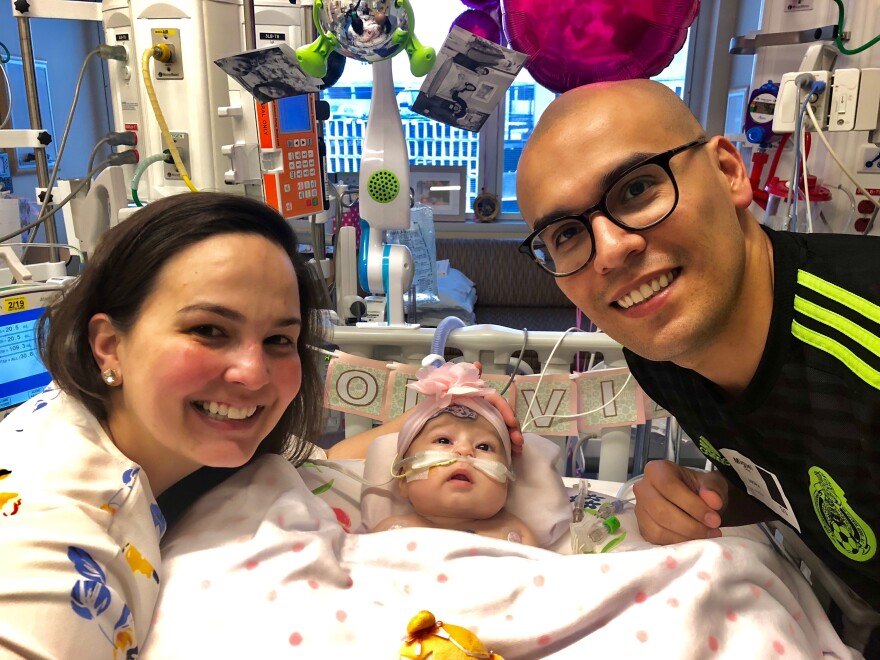Olivia Solis has spent her entire life in the hospital. The three-month-old baby was born with a congenital heart defect. She's had multiple surgeries; the latest to close her chest after an extremely rare infant heart transplant.
Olivia's now out of the ICU at Children's Health Medical Center in Dallas. The news is a relief to her parents Miguel Solis, a Dallas ISD trustee, and pediatrician Jacqueline Nortman.
"[Olivia's] in the best spot that she's ever been literally in her entire life," Solis said.
In our Friday Conversation, Solis took a break from hospital duty to talk about his daughter's story.
Interview Highlights: Miguel Solis
On how they learned of Olivia's condition:
We had no reason at any point in the pregnancy to expect this. All the results suggested Olivia was going to

be an extremely healthy baby. It was a very smooth birth and she came out crying like every normal baby does.
Almost immediately after she came out though, we began to recognize that there was something going on. We thought she was going to have some issues with her blood sugar because my wife, Jacqueline, had gestational diabetes. The baby came out with low blood sugar and thank God she did because that led her to go to the NICU that first night which led to a murmur detection, which led to an echocardiogram and diagnosis that no parent wants to hear: a congenital heart defect that needed immediate and invasive procedures.
On coming to terms with the fact that Olivia could die at any time:
There is no training that anyone can receive for your child to have to deal with something like this. Jacqueline and I have leaned on faith more than anything else. You know, we've got all these titles and we've worked really hard in our young lives to be successful. None of that stuff, even a pediatrician background, can save your daughter in a situation that Olivia faces. We were left and sustained by faith. One thing that has made a tremendous impact on our lives has been the way that the community has supported us.

On Olivia's long-term prognosis after her transplant:
If a heart is going to reject in a young person, it rejects in that first month. The next big goal would be making it through a full year, then the next goal is three years. If you can get past those three years, statistics suggest you're on a path to having a strong life. Olivia may have 20 to 30 years of a normal life before we have to begin to decide on what that next step may be — and that's with today's science. She will live a life full of medicine but that's something we can deal with if she can live a life.
On his advice to parents of children with congenital heart defects:
Have hope. In your darkest days, you have to have hope and faith that it will work itself out. A handful of times, Jacqueline and I had to look at our daughter and know that that could be the last time we were looking at her alive. Each of those times, we had to take a step back and say, "We put our faith in the Lord and the hands of tremendous professionals who have done this time and time again." The days can get extremely dark in a cardiac ICU. Things can literally change in a heartbeat. When things don't look that great, you just gotta have hope.
This interview has been lightly edited for length and clarity.






